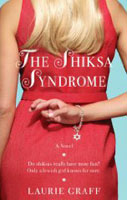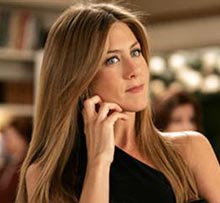 I always wonder what new angle writers will take when tackling the complex issues involved in the dating scene, both in the fiction and non-fiction realms, and what their reasons are. I mean, the books pile up year after year: what’s wrong with you, what’s wrong with him, where to meet guys, how to pick up chicks, online dating success and misery, etc. I had a whole collection of these books in New York, and when I re-established myself in California, I went to a buck-per-book resale store and bought up a bunch of titles I’d never read: titles like “Date Like a Man” and “Interfaith Relationships for Dummies.” (This was a $1 store, people, so don’t judge.)
I always wonder what new angle writers will take when tackling the complex issues involved in the dating scene, both in the fiction and non-fiction realms, and what their reasons are. I mean, the books pile up year after year: what’s wrong with you, what’s wrong with him, where to meet guys, how to pick up chicks, online dating success and misery, etc. I had a whole collection of these books in New York, and when I re-established myself in California, I went to a buck-per-book resale store and bought up a bunch of titles I’d never read: titles like “Date Like a Man” and “Interfaith Relationships for Dummies.” (This was a $1 store, people, so don’t judge.)
I’m not sure I will read them, but there’s something about having them close by, and seeing the ludicrous extent to which this industry has grown, that makes me think about joining them, and doing so more nobly or artistically than the volumes I’ve collected.
I haven’t read “Shiksa Syndrome,” but this review alone made me cringe at the premise: Jewish girl gets broken up with by non-Jewish guy; gets makeover; goes to singles event and meets a nice Jewish boy, but is herself mistaken for a non-Jewish woman. Whatever will she do? Presumed hilarity, and because the book is referred to as chick-lit, undoubtedly true love, ensue.
Aimee, the 39-year-old protagonist (at what age-point does a woman stop getting referred to as a chick in the genre of lit?) is painted in broad stereotype, says the reviewer, noting “she craves deli food, never misses a Shabbat dinner with her parents and spews so many Yiddish words you’d swear she was carrying around a dictionary.” When Aimee begins her new life feigning Protestantism, she “de-Jewifies” her apartment by replacing her prayer book, Shabbat candles and rye bread with Christmas cards, plastic Easter eggs and white bread.” The reviewer seems to have lost her patience with the book too, calling it “too predictable to tolerate.” (Note to self: when writing your book, avoid writing that might lead anyone to describe your writing in this way.)
Getting rid of rye bread? Is this a Jewish ritual I’m not aware of? DeJewification of my life and apartment would take a professional – that guy from “Pulp Fiction” played by Harvey Keitel – he’d have to show up, hose the place down and then dump the evidence somewhere. And then, I’d need a Henry Higgins to totally alter my inflections and every word out of my mouth, so they wouldn’t serve as shibboleths.
I think I’m going to pass on “Shiksa Syndrome,” for all of the above reasons as well as in protest of the vulgar term. But if writer Van Wallach ever writes a book about his dating habits, I’ll read it in a flash, and here’s why. As you can see in “What I Learned About Love from Tony Soprano,” his writing is as entertaining as it is beautiful, as he melds pop culture lessons into his presumably most un-Sopranoesque life:
Smart and vulnerable and shtetl-lovely, Sandi cut straight to the reptilian precognitive boy-girl attraction node in my brain. She glided into my life like a swan and I adored her. […] Whatever hopes I nurtured for the swan, I was utterly, willfully, blindly wrong – as blind as Tony when he couldn’t believe Big Pussy was wearing a wire for the FBI. The latest cycle ended after I sent her a birthday card. Sandi called and said, “I have to be blunt. I’m dating somebody else.” She simply had no romantic feelings for me. The swan became a raptor, clawing my heart into strips of linguini a la Artie Bucco.
Perhaps it’s not fair to compare what seems like “just another chick-lit book” with a first-person blog essay. But encountering both pieces in the same moment means something to me about the depth of weight people give to religion vs. popular culture influences. We may be moving into an era when religion is painted in stereotypes, and pop culture provides us with meaning that is more immediately resonant.
Were we to seek out the opinion of Dr. Melfi about our dating behaviors, she might encourage us to dig into our memories of our family, as well as look at ourselves through the lens of pop culture, or religion, or any other system that holds meaning for us.
We are pop culture (or religion, or family), and pop culture (or religion, or family) is us. And just like dating, you have to be deep “in the family” to ever take a whack at understanding it.



